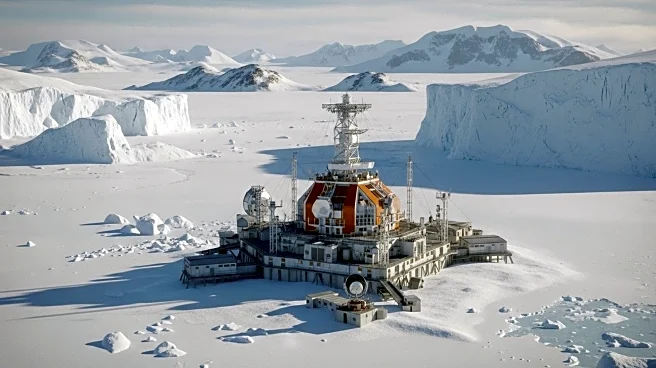What's Happening?
A research initiative funded by the European Union, known as OCEAN ICE, is investigating the impacts of climate change on the Antarctic ice sheet. The project is part of a broader effort to understand the interactions between the ocean and cryosphere in Antarctica and their effects on the global climate system. The study is supported by various European funding programs, including Horizon Europe and the European Space Agency's climate change initiatives. The research aims to provide insights into the long-term satellite data of the Greenland and Antarctic ice sheets, contributing to scientific understanding of ice sheet dynamics and climate change.
Why It's Important?
The research on Antarctic ice sheets is crucial for understanding global climate change, as these ice sheets play a significant role in sea level rise and climate regulation. The findings could influence international climate policy and inform strategies to mitigate the impacts of climate change. Stakeholders such as governments, environmental organizations, and scientific communities stand to benefit from the insights provided by this research, which could lead to more effective climate action and adaptation measures.
What's Next?
The ongoing research will continue to analyze satellite data and model ice sheet behavior to predict future changes. The findings may prompt further international collaboration and funding to address climate change challenges. Researchers and policymakers will likely use the data to develop strategies for managing the impacts of melting ice sheets on coastal communities and ecosystems.
Beyond the Headlines
The study highlights the importance of international cooperation in addressing climate change, as multiple European entities are involved in funding and supporting the research. It also underscores the role of advanced technology, such as satellite imaging, in enhancing our understanding of environmental changes.









